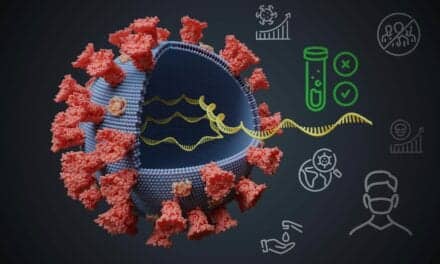Molecular diagnostics powerhouse Roche, Basel, has recently announced the acquisition of Ariosa Diagnostics Inc, a privately held company based in San Jose, Calif. Ariosa is a molecular diagnostics service provider of targeted noninvasive prenatal testing (NIPT) through its CLIA-certified laboratory, using cell-free DNA (cfDNA) technology.
Ariosa’s proprietary Harmony prenatal test is a blood test that can be performed as early as 10 weeks into pregnancy. By evaluating fetal cfDNA found in maternal blood, the test is designed to assess the risk of Down syndrome and other genetic abnormalities. Specifically, the test assesses the risk of trisomies 13, 18, and 21, which are indicative of an extra chromosome in the fetus that can lead to severe genetic conditions.
“The acquisition of Ariosa is another example of Roche’s commitment to advanced molecular diagnostics,” says Roland Diggelmann, COO of the Roche Diagnostics Division. “Circulating cfDNA has the promise of providing early diagnostic information through a simple blood test in many important segments, including pregnancy, cancer, and transplantation, aligning with our strategy in personalized healthcare and commitment to setting new standards of care.”
Ariosa tests are fully validated to CLIA requirements by rigorous and comprehensive methodologies, to ensure that healthcare practitioners and patients can be confident in the tests’ performance. The Harmony prenatal test has been validated to CLIA requirements by a robust clinical data set based on studies among more than 22,000 women of all ages and risk categories. Data for the Harmony test have not been submitted to or evaluated by regulatory agencies, and the test is not for sale as an in vitro diagnostic in the US or the EU.
There are more than 200 million pregnancies annually worldwide and prenatal screening for Down syndrome has become common practice in many countries.1 Conventional screening tests return false-positive results up to 5% of the time, while the Harmony prenatal test has a false-positive rate of less than 0.1%.2,3
“We are thrilled to join forces with Roche to continue in our commitment to bringing forward high quality and affordable genetic testing that positively impacts the medical care of patients around the world,” says Ken Song, MD, CEO of Ariosa.
The transaction is expected to close in December 2014. For additional information, visit Roche.
References
1. World health report 2013: research for universal health coverage. Geneva: World Health Organization, 2013. Available at www.who.int/whr/2013/report/en.
2. ACOG Committee on Practice Bulletins. Screening for fetal chromosomal abnormalities. ACOG practice bulletin 77. Obstet Gynecol. 2007;109(1):217–227.
3. Norton ME, Brar H, Weiss J, et al. Noninvasive chromosomal evaluation (NICE) study: results of a multicenter prospective cohort study for detection of fetal trisomy 21 and trisomy 18. Am J Obstet Gynecol. 2012;207(2):137.e1–e8; doi: 10.1016/j.ajog.2012.05.021.






